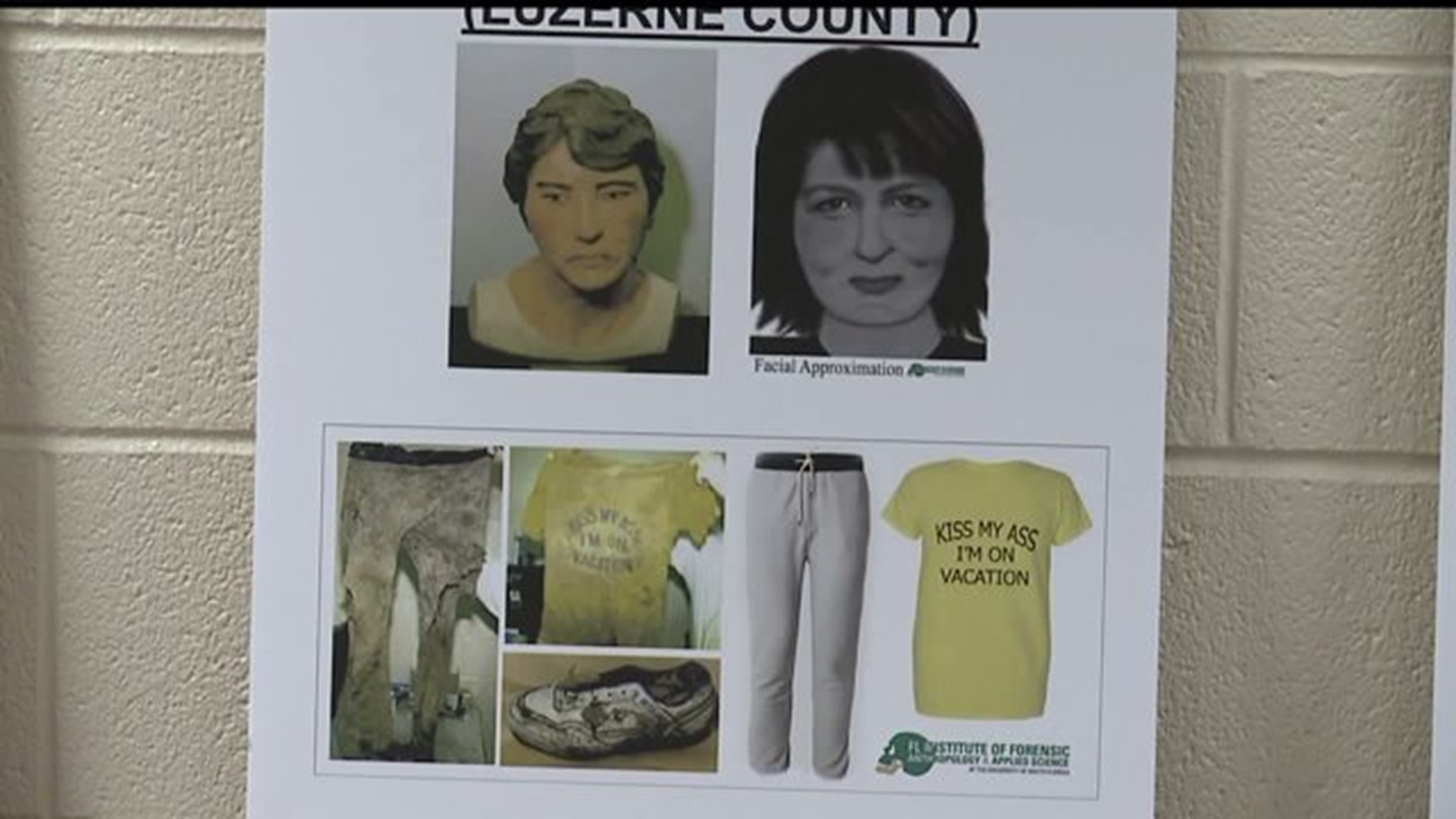SUSQUEHANNA TOWNSHIP, DAUPHIN COUNTY, Pa. -- Pennsylvania State Police are working with scientists to solve crimes and bring justice to victims who have yet to be identified.
These unknown victims are not alone.
University of South Florida forensic anthropologist Dr. Erin Kimmerle said, "It's estimated there are more than 40,000 unidentified persons in this country, and more than 200,000 open homicides. In each case, there are family, friends, and people who knew that person, who had been looking for them and and not knowing what happened to them."
Modern technology is being used to reopen cold cases and investigate some of the state's unsolved mysteries.
"DNA testing, chemical isotope testing, facial reconstruction and anthropological analysis, it could be as simple as redefining their age range can make a big difference," Dr. Kimmerle said.
Pennsylvania State Police are starting with four unknown victims and hope to find them justice
Pennsylvania State Police Cpl. Tom McAndrew said, "These people as they're lying in unmarked graves, they have no chance. You were possibly the one person that gave them the chance or the team members you're working with you gave them that one chance. They weren't forgotten."
"The purpose of this work is pretty simple, it's to try and identify unknown persons, particularly those who are victims of homicide. The first step to that to finding justice for the victims is bringing back their identity," Dr. Kimmerle said.
If successful, work being done in Pennsylvania could help law enforcement nationwide.
"It's an internet-based system, the public can go on there, send in tips, to that system, we're trying to get those cases profiled in there that other investigators in these other states can now see more details, of all these other cases to try to match it all up," Cpl. McAndrew said.
Investigators believe introducing legislation to set standards for collecting evidence, could have a long-lasting effect on investigating difficult cases.
"It takes into consideration today, that some future investigator 20 years from now aren't going to have to dig that person up, because they did take the appropriate samples, they did take hair, they did take the teeth, they did take certain bone samples," Cpl. McAndrew said."

